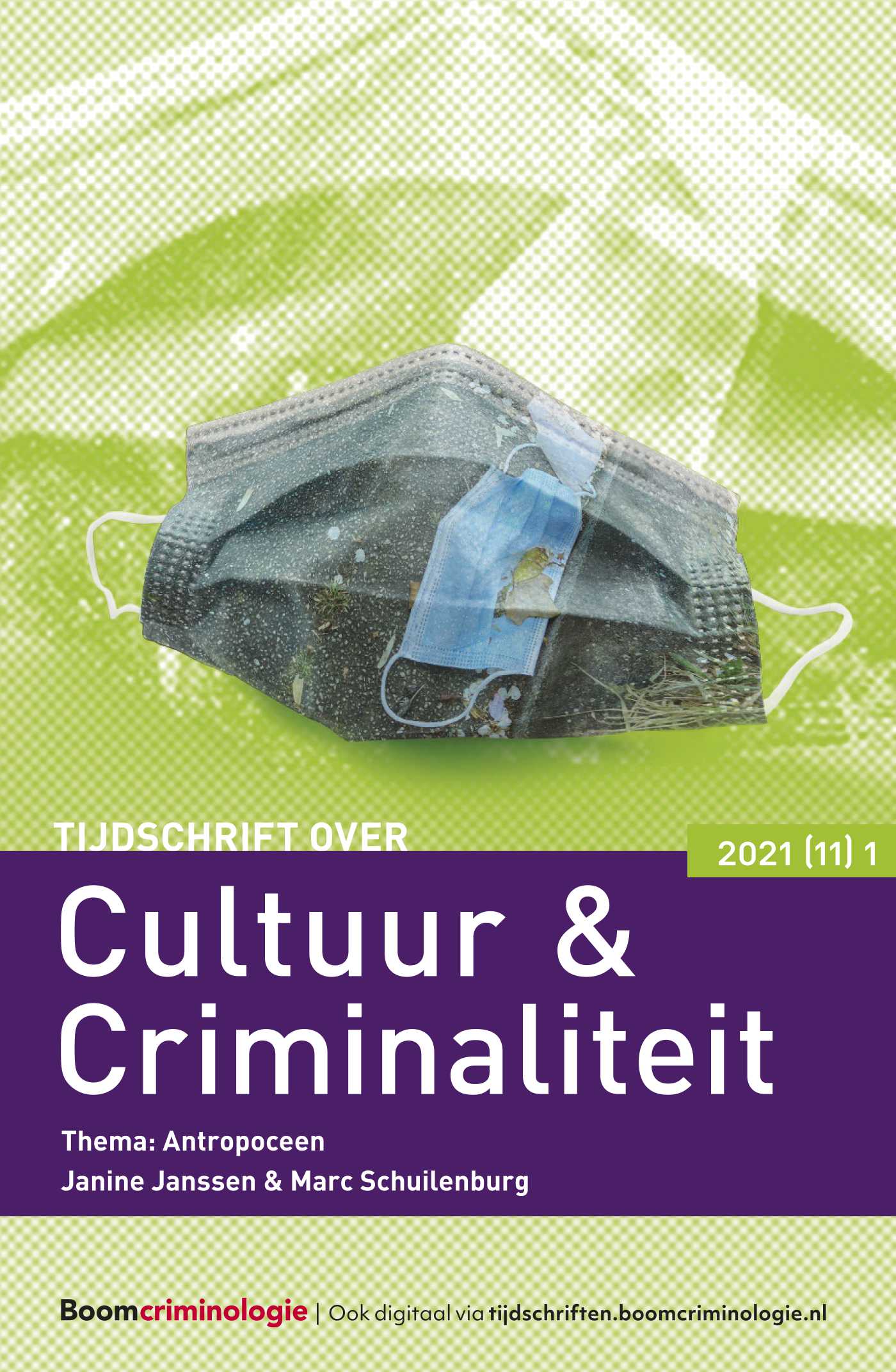|
In this article several perspectives on studying taboos within social sciences are described. Originally, taboo, a concept that was already used within Polynesian societies early 1800, referred to food that was not allowed to eat. Anthropologists analyzed taboos especially in a functionalistic manner, as contributing to the maintenance of existing power balances within societies. These and other studies on taboos all illustrate the fact that taboos are very much a social construction and are very much time and place dependent. In contemporary western societies taboos are associated with ‘open secrets’ and ‘silencing’. Within criminology certain topics are considered taboo as a research object (e.g. explaining crime through ethnic, cultural or religious characteristics), while others claim that there are no criminological research taboos left. |


Tijdschrift over Cultuur & Criminaliteit
Meer op het gebied van Criminologie en veiligheid
Over dit tijdschriftMeld u zich hier aan voor de attendering op dit tijdschrift zodat u direct een mail ontvangt als er een nieuw digitaal nummer is verschenen en u de artikelen online kunt lezen.
| Artikel |
Taboe in culturele criminologie? |
| Trefwoorden | taboos, criminology, open secrets, social sciences |
| Auteurs | Prof. dr. Dina Siegel en prof. dr. Richard Staring |
| SamenvattingAuteursinformatie |
| Artikel |
Vervolg je reis en struikel niet: antropologie van dood en taboe |
| Trefwoorden | Death, denial, taboo, anthropology, Suriname |
| Auteurs | dr. ir. Yvon van der Pijl |
| SamenvattingAuteursinformatie |
|
This article explores the relation between death, the fear and denial of it, and the appeal of mortuary rites attempting to transcend senses of mortality. It aims to show how our Own death, as a shamefull and solitary characteristic of modernity, has become a taboo and how it simultaneously continues to spur our imagination of the way Others die. Building on research in Suriname, it argues that both colonial compulsion and anthropological gazing have contributed to distorted and ambiguious attitudes toward death cross-culturally. As such, the article seeks to advance discussions on death and taboo as a perpetuum mobile of dread and everlasting enchantment. |
| Artikel |
De seksuele tiener en de sociale orde |
| Trefwoorden | youth, sex, transgression, criminal law |
| Auteurs | Mr. drs. Juul Gooren |
| SamenvattingAuteursinformatie |
|
A taboo serves the social order for it facilitates social control. This article will focus on taboos related to sexual contact by youngsters. The way authorities guard sexual taboos is indicative of the way authorities envision the organization of society. It is this organization through the control of youth and sex which will receive attention. In the classic study by Mary Douglas on pollution and taboo dirt is understood as ‘matter out of place’. The sexual teenager is an illustration of this ‘matter out of place’ because it is difficult to categorize sexual teenagers on the basis of asexual children and sexual adults as an organizing principle for society. In criminal law lewd conduct by youngsters refers to wrong sex at the wrong age. By criminalizing these sexual transgressions the proper place of youth and sex is once again restored. This is necessary for it will be argued that the interests of society are somewhat under pressure because of transgressions when it comes to children as asexual and when it comes to sex as something for within a relationship. The perpetrator of lewd conduct should be understood as a scapegoat reestablishing when and how sex should take place. By restoring the asexual child and the sexual relationship it is hoped sex and youngsters can once again offer some guidance in a social order lacking these clear markers. |
| Artikel |
Godslastering voor en na de aanslagen op Charlie Hebdo |
| Trefwoorden | Blasphemy, Freedom of speech, Religious Extremism, Terrorism |
| Auteurs | dr. Jean-Marc Piret en prof. mr. dr. Jeroen ten Voorde |
| SamenvattingAuteursinformatie |
|
Triggered by the recent Paris attacks the authors make an attempt to answer the question how liberal democracies can react to religious extremists that respond with violence to utterances they consider to be blasphemous. After a brief historical survey of the reactions to blasphemy in penal law and philosophy, the authors compare blasphemy laws and their relation to the freedom of speech in various European countries. Then they analyse the relevant case law of the European Court of Human Rights and the U.S. Supreme Court. In their conclusion the authors defend the position that liberal democracies should be cautious in order to prevent the principles of liberal democracy from being subverted by self-censorship induced by fear of extremism. |
| Discussie |
Satire en politiek incorrecte taal: de premie op taboe-doorbreken |
| Trefwoorden | satire, taboo, political correctness, free speech, the right to insult |
| Auteurs | Dr. Bas van Stokkom |
| SamenvattingAuteursinformatie |
|
This essay argues that the breaking of taboos is an effective means to increase one’s definition-power and discredit the establishment. But rhetorical warfare and satire may also turn into its opposite: strengthening fanaticism. First, the author discusses the controversy surrounding the cartoons of Charlie Hebdo and the militant pleas for maximum artistic freedom, articulated by Salman Rushdie and others. In the second part of this essay the author argues that advocates of an inviolable right to freedom of expression, including the right to insult, may create their own taboos. Within the tabloid press and the outrage industry this ‘right’ gets more aggressive functions. Finally, some ambiguities about political correctness and the racism-taboo are discussed. |
| Artikel |
|
| Auteurs | prof. dr. Dina Siegel |
| Auteursinformatie |
| Praktijk |
Taboe |
| Diversen |
Externe beoordelaars 2015 |

